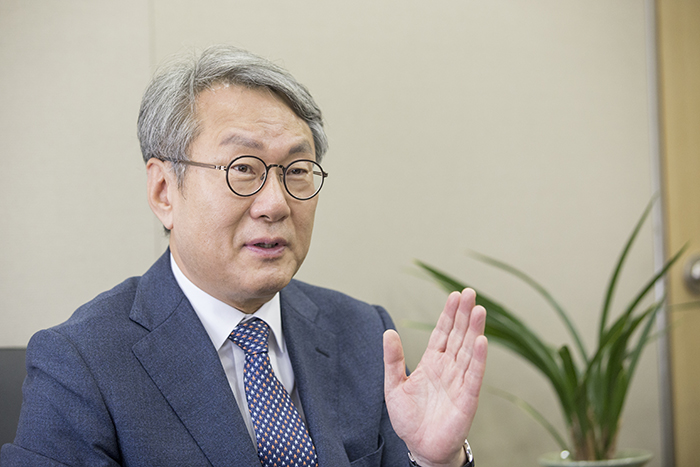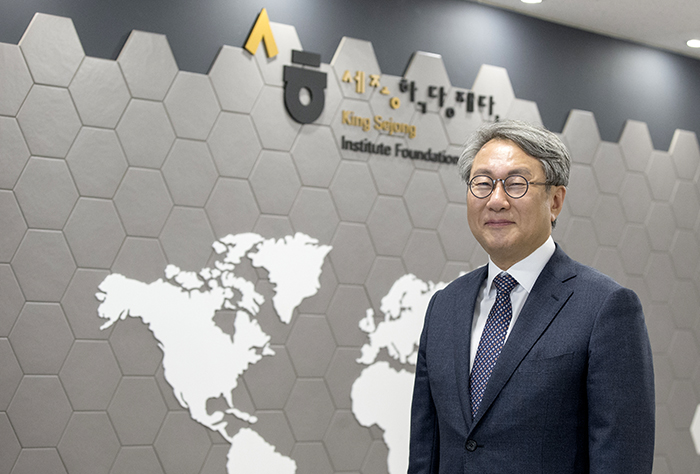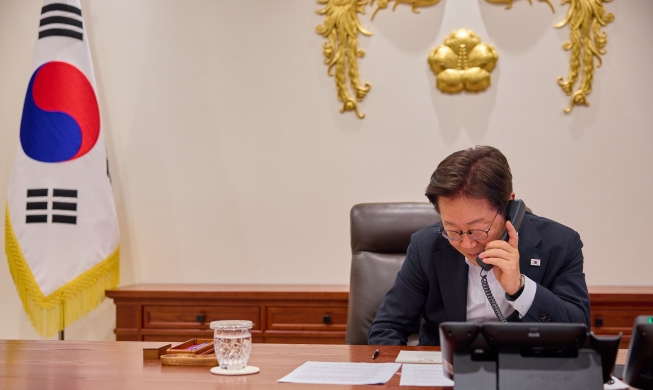
Chairman Song Hyangkeun of the King Sejong Institute Foundation talks about the institute, which celebrates its 10th anniversary this year.
By Hur SomEe and Kim Young Shin
Photos = Kim Sunjoo
Seoul l Sept. 22, 2017
The King Sejong Institute and its series of Korean language learning centers all around the world celebrate its 10th anniversary this year.
The first King Sejong Institute opened its first school in Ulaanbaatar in 2007 and that year started teaching Korean at 13 locations in three countries. It has since expanded and finally developed into the King Sejong Institute Foundation in 2012.
Currently, a total of 171 King Sejong Institutes teach Korean in 54 countries on five continents. The foundation also hosts the annual Korean Educators Conference and Korean Speech Contest, to train professional Korean teachers and to inspire students to study Korean even harder.
Chairman Song Hyangkeun of the institute defined the King Sejong Institute as “little Koreas all over the world” and as “a window and a pathway to learning about Korea.” On Sept. 22, Korea.net sat down with Song at the King Sejong Institute Foundation offices in Seocho-gu District, Seoul, to hear about the globalization of the Korean language and the history of the institute.

Chairman Song Hyangkeun of the King Sejong Institute Foundation says, 'It's the aim of the King Sejong Institute to provide education of even-quality, wherever you are.'
- What is the reason for the high demand of Korean language education?
Interest in the Korean language grew explosively over the past few years.
A representative case is the increase in the number of takers of the Test of Proficiency in Korea (TOPIK), which has been around for over 30 years. Last year, more than 250,000 people took the exam.
About half of the students who come to King Sejong Institutes say that they want to learn Korean because they're interested in Korean pop culture. Korean soap operas and pop music is quite popular in China, Japan, Southeast Asia, Central America, Europe, North and South America, and even in Africa. After that, people start to get interested in Korea itself. One example of such interest is the increased number of Korean language students.
- What kinds of changes were made to King Sejong Institutes?
This year, six learning centers around the world met our criteria and were newly designated as official King Sejong Institutes, out of a much larger pool of applicants. Also, last year in Tehran, 300 people stood in line starting the night before to register for the King Sejong Institute’s classes there. People in Mexico also continuously express their interest in the Korean language. The government of Mexico City even requested more Korean courses, offering to provide more classrooms.
- Do all the students at King Sejong Institutes all around the world receive the same education?
Yes. It's our goal to provide an education of equal quality to our students all around the world. The foundation publishes the "Sejong Korean" (세종한국어) textbook in seven languages, including English, simplified Chinese, Spanish and Russian.
- What are the future goals of the institute?
The King Sejong Institute focuses on training teachers and providing online courses in order to become professional Korean language educational institutes.
There are some 650 teachers working for the King Sejong Institutes around the world. About 70 percent of them are licensed teachers sent from Korea, and the rest are local non-Korean teachers who majored in either Korean language or Korean literature. The foundation provides refresher courses and training education to ensure teachers’ professionalism.
Online courses are also very important. Thanks to the development of the internet, we established Nuri-Sejong Institute, a website that provides materials relevant to learning the Korean language. With a simple registration process, students and teachers can gain access to the textbook, teaching methods and educational content. This year, its number of members surpassed 100,000.
- What's your vision for the King Sejong Institute?
We've made progress over the past 10 years, and we're planning for the future with even more schools.
As there are numerous King Sejong Institutes all around the world, we are trying to develop each of them into a specialized and localized educational center. Starting last year, we established the “King Sejong Institute base” to discover exemplary cases and to spread those good examples to other institutes. It's also our aim to have our schools serve as a Korean-learning headquarters on each continent.
Domestically, it's our goal to make the phrase “Go to a King Sejong Institute” to be the answer when non-Koreans ask where they can learn Korean.
sehp91@korea.kr
Most popular
- Songs from 'KPop Demon Hunters' dominate global Billboard charts
- Council sets minimum hourly wage in 2026 at KRW 10,320
- 28th annual Boryeong Mud Festival to offer more night events
- Songs from animated K-pop film rule Spotify daily chart in US
- Exhibition 'K-Comics World' hawks webtoons in 5 countries
